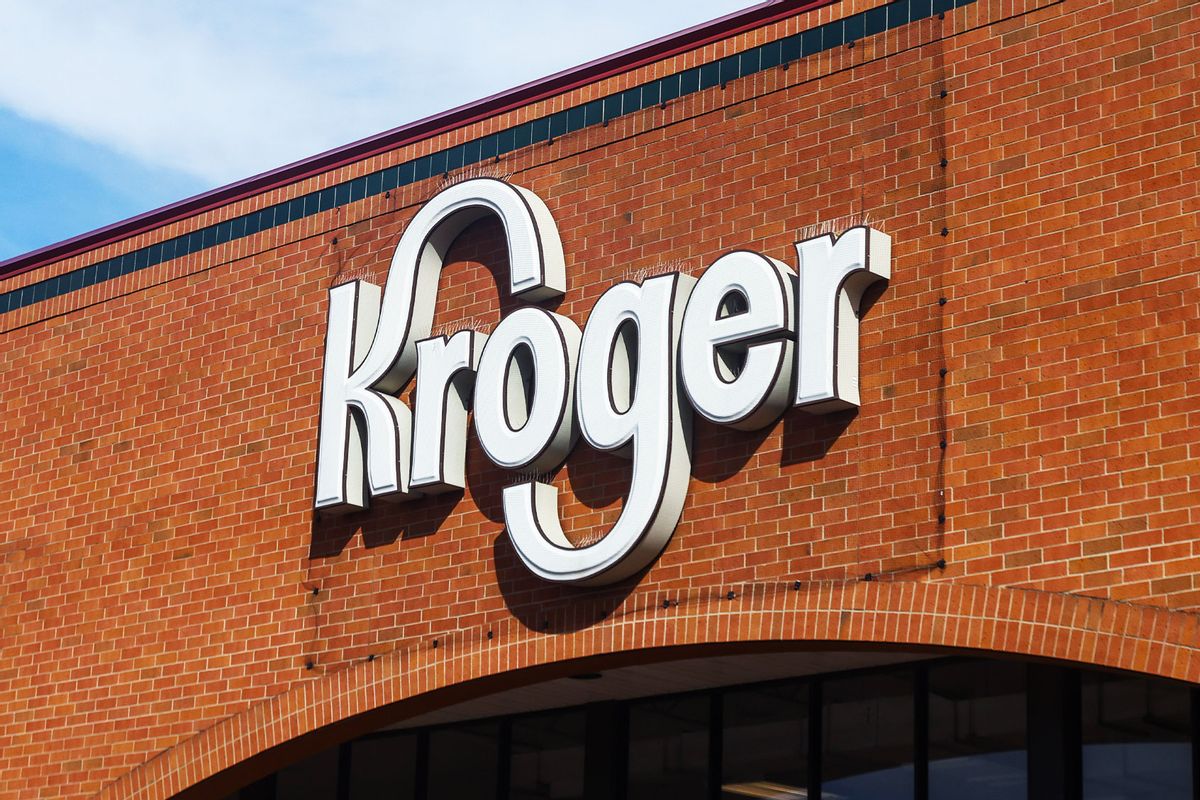Earlier this month, the national supermarket chain Kroger — which owns Ralphs, Fry's, Harris Teeter and Pick 'n' Save among other brands — announced that it would be selling over 400 grocery stores to C&S Wholesale Grocers, a much smaller grocery supply chain company that currently has around two dozen stores under the Grand Union and Piggly Wiggly brands.
It's anticipated that Kroger will receive about $1.9 billion for the store divestitures — however they still may end up selling more.
As Reuters reported, in order to receive regulatory approval for their planned $25 billion merger with Albertsons in early 2024, the company has said it may need C&S to purchase up to an additional 237 stores in certain geographies, leading some employees to voice concern about the future of their jobs.
The proposed Kroger-Albertsons mega-chain has been controversial since it was announced in October 2022 that the boards of both companies had voted to approve the merger; a month later, their respective chief executives stood before members of the Senate Subcommittee on Competition Policy, Antitrust and Consumer Rights to defend the decision.
As Salon Food reported, Rodney McMullen, the chair and CEO of The Kroger Co., told committee members — who are led by U.S. Senator Amy Klobuchar (D., Minn.) —that the merger would "bring together two complementary organizations to establish a national footprint, allowing us to expand our customer reach and improve proximity to deliver fresh and affordable food."
However, senators from both parties questioned the need for the merger and voiced concerns over whether it would result in lost jobs and decreased competition in the grocery sector.. Senator Mike Lee (R., Utah), the subcommittee's ranking Republican member, questioned if the companies would actually keep prices low for customers.
"Inflation, to put it gently, is wreaking havoc on our entire economy, but not on the grocery industry, it appears," Lee said.
McMullen responded that the combined entity planned to keep prices stable; he said price cuts would start immediately and that simultaneously, no "front-line workers" in stores, warehouses and manufacturing facilities would be laid off. The position that no front-line workers would be forced out during the merger is one that McMullen has since maintained throughout preparations for the deal to close — however recent history raises a few flags.
"Inflation, to put it gently, is wreaking havoc on our entire economy, but not on the grocery industry, it appears."
On July 25, 2014, Safeway stockholders approved a $9 billion merger with Albertsons. As CNN reported, in order to win approval for the deal from antitrust regulators, Albertsons and Safeway agreed to sell 168 of their stores to buyers approved by the Federal Trade Commission. 146 of those stores were purchased by Haggen, a small supermarket chain in the northwestern United States with just 18 locations.
"The grocer expanded more than eight-fold essentially overnight, and couldn't absorb the stores it acquired," Nathaniel Meyersohn wrote for CNN. "Less than a year later, Haggen filed for bankruptcy and closed some locations."
Job losses followed and eventually Albertsons bought back dozens of the same stores it previously sold to Haggen in bankruptcy court — at a much lower price.
"The 2015 Albertsons and Haggen deal left many workers scrambling around," Christina Robinett, who now works at Vons in Ojai, California, said in a statement to Eater in May. "After Haggen went bankrupt and shut down my store, I applied for work at four different stores . . . I wasn't able to get a job for three months and I had to take side jobs as a seamstress and cleaning houses to make ends meet. That merger caused me a lot of anxiety."
Throughout discussions regarding the merger, members of the UFCW local unions —The United Food and Commercial Workers International Union represents many Kroger employees — have been vocal regarding their concerns over whether the accompanying divestiture would result in job losses.
We need your help to stay independent
In November, union leaders representing 100,000 Kroger and Albertsons workers in twelve states and the District of Columbia traveled to Washington, D.C. to demand regulators halt the proposed merger between the chains. Lugretzia Berg, a UFCW 770 member and a Vons (Albertsons) Front End Supervisor from Camarillo, California whose store closed as part of the 2014 Albertsons-Vons merger, gave a public statement.
"In a few months, Haggen shut down. Thousands of my coworkers and I lost our jobs. I had to juggle two jobs: cleaning houses and waitressing to be able to pay my bills and feed my family," she said. "We were all put on a waiting list to get our jobs back at Vons. We had to reapply for a new position. My coworkers were unemployed for a year or more and some never got their jobs back. Others came back at a lower wage rate and have never been able to recover the standard of living they had before that merger. We don't want to go through the same devastating experience again."
How is the union treating the current news of the divestiture? Earlier this month, UFCW International President Marc Perrone released a very measured public statement that prioritized the workers.
"We don't want to go through the same devastating experience again."
"As we have made clear since the day the proposed Kroger Albertsons merger was announced, our focus is, and will always be, on a stable and long-term solution that protects our members' wages, benefits, and pensions," Perrone said. "Any deal must be in their best interest, as it is our members – and all Kroger and Albertsons workers – who perform the invaluable job of helping feed and serve our nation every single day."
He continued: "These companies are successful because it is our members who make them a success, and no proposed merger or divestiture of stores should endanger or threaten the vital role they play."



Shares